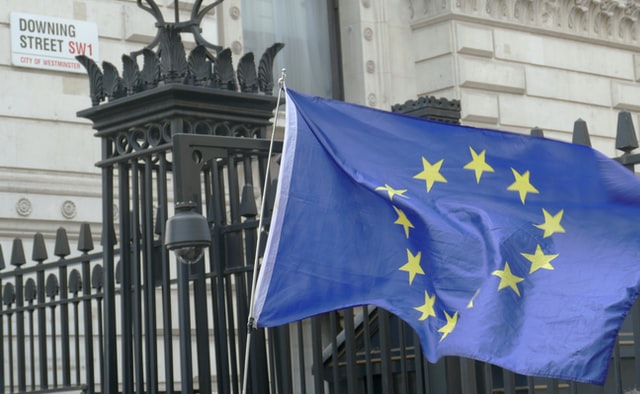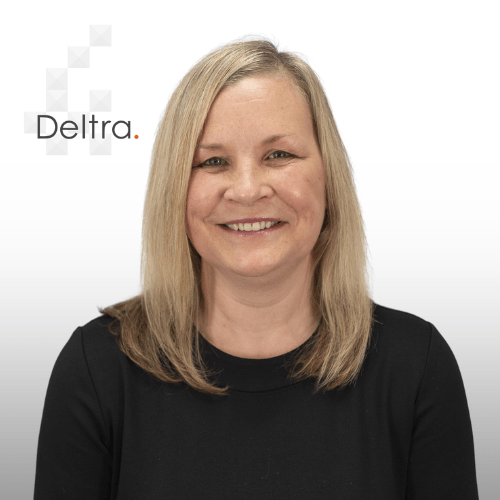Webinar Roundup: What Retailers Can Learn from Brexit Preparations with Samantha Francis
Businesses are always adapting to an ever-changing landscape, but occasionally something comes along that shakes the foundations of your business and puts you on the back foot. When the UK voted to leave the EU in June 2016, businesses rushed to understand how changes in laws and regulations would affect them. There was no clear timeline and companies didn’t know if they would receive government support, but we all knew we had to be prepared if we were to weather the storm.
For multinational retailer Arcadia Group, the person leading the Brexit programme was Samantha Francis, who has over 25 years’ experience in retail. Sam started her retail career as a part-time job alongside college, where she discovered a passion for the industry. Sam rose the ranks through to head office and operations roles, before stepping into a position as Head of International Operations at Arcadia Group in 2012. In 2018, she was appointed Head of Programmes and subsequently put in charge of the Brexit Readiness Programme for the entire group. We were lucky enough to hear Sam speak at our digital roundtable event ‘What Retailers Can Learn from Brexit Preparations’ on March 11th. During the webinar, we listened to Sam talk about her time heading up the Programme, the challenges she faced and the lessons she learned.
Plan for the worst
When Sam accepted the responsibility of readying Arcadia Group for the UK leaving the EU, the objective was clear: mitigate the risks and ensure service is uninterrupted across all brands. However, the risks were not yet known. It wasn’t even definite that we would leave the EU, as the idea of a second referendum was circulating. On top of this, the programme had a very limited circle of control. All decisions regarding trade with the EU and other countries were being made by the government. The worst-case scenario for businesses was a ‘No Deal Brexit’ due to the wider implications of this outcome. Because of the uncertainty about what would happen, Sam concluded that planning for the worst provided them the most security.
What was integral to the ‘plan for the worst’ approach was that the team made ‘no regret’ decisions. This meant that all decisions must still benefit the business somehow. For example, could they now explore alternative distribution and supply chain opportunities? To do this, the key risk areas of Brexit were identified, and the level of risk was defined. By doing this, it allowed the team to consider their response and lay out how they would mitigate each risk. Importantly, as is often the case in transformation, there was no precedent. Without a rulebook to follow, a thorough plan is invaluable.
Tackling project fatigue
We all know that project timelines are constantly shifting, and Brexit is the perfect example of this. Deadlines were always being pushed back by the government, meaning milestones for the programme had to change too. Sam noted that the perpetual delays made people very dismissive of Brexit. It made it very hard to convince people to take action, as people almost felt like it wasn’t going to happen. Empathy and consistency were crucial to increasing buy-in from different teams.
"The business would be excited about a new deal or strategy and I'd come along and say: 'But have you considered what will happen after Brexit?'"
On top of this, there were limited resources available to the Brexit Readiness Programme. The people leading the workstreams were not dedicated to mitigating Brexit, they were still working their day jobs. This put extreme pressure on people to keep up with the programme, and the continuous stopping and starting led people to become exasperated by the programme.
The importance of collaboration and empathy
Arcadia Group was a holding company with 7 brands under its belt. However, the brands were essentially siloed and treated as separate entities; they had different cultures and ways of working. Sam’s role meant she had to coordinate across these brands and break down barriers to communication as it was imperative that all of the Brands and Shared Services made it through Brexit.
After attending one of Deltra’s events that gathered retailers to discuss Brexit, Sam realised the importance of sharing ideas, asking a lot of questions and discussing potential risks and opportunities However, when calling cross-brand and cross-function meetings, it was evident that most of these people had not sat in a room together. The business was not set up in a way that facilitated sharing knowledge across Brands, so Sam established regular meetings with all of the brand and Shared Services representatives. Now, she attributes a lot of her success to this collaborative approach.
Empathy was key for this tactic to work. The brands had limited history of working together and it was Sam’s role to ensure that the teams meshed effectively. Not only this, but Brexit also affected nearly every part of the business. Overseeing the programme meant communicating with IT, Logistics, Finance, Legal, suppliers and many more, while minimising resistance. Understanding why certain teams may be resisting change goes a long way to getting them on board.
The need for consistency and agility
You’ve heard it before: consistency is key. However, this is even more true when working across numerous business areas, multiple brands and hundreds of stores globally. Sam established simple governance systems that everyone could adhere to and ensured that all plans and objectives were documented. Having a consistent approach helped support buy-in from teams as they knew who their points of contact were and how to report progress even if the project had been on pause for 3 months. Clear documentation also helped onboard people efficiently as new staff could be quickly brought up to speed on the programme.
Although you must be consistent in your methodology, Sam also highlighted the importance of changing tact when you need to. This was unavoidable with Brexit as deadlines kept being pushed back and deals renegotiated. It’s easy to get sucked into the details of your project and miss the bigger picture. So, take a step back once in a while and reassess your situation and the needs of your programme. Sam made it clear that simply ploughing ahead and ignoring the situation can be much more damaging than being honest with the business.
“Don’t be afraid to go back to the business... It’s okay to tell them that something isn’t working.”
Finding your way through unprecedented periods of change is a challenge, but we certainly learned a lot from our discussion with Sam. It was clear from the session that putting the legwork in to define a strategy at the beginning of the programme will serve you well for its duration. Couple this with recognising the power of collaboration, empathy and consistency, all while being agile. We encourage you to put some of Sam’s teachings into practice and see how they can benefit your project.
We host events like this often and on a wide range of topics, hearing from some great people in business transformation. If you would like to get involved in future as a guest or a speaker, then please don’t hesitate to get in touch through our Networking Events page.

Helen Ives
24th March
Events
Related insight
Related News
Looking to
transform?
Quicklinks

Address
Deltra Group
52-54 Gracechurch St
London
EC3V 0EH
Contact
+44 (0)207 375 9500
info@deltragroup.com



